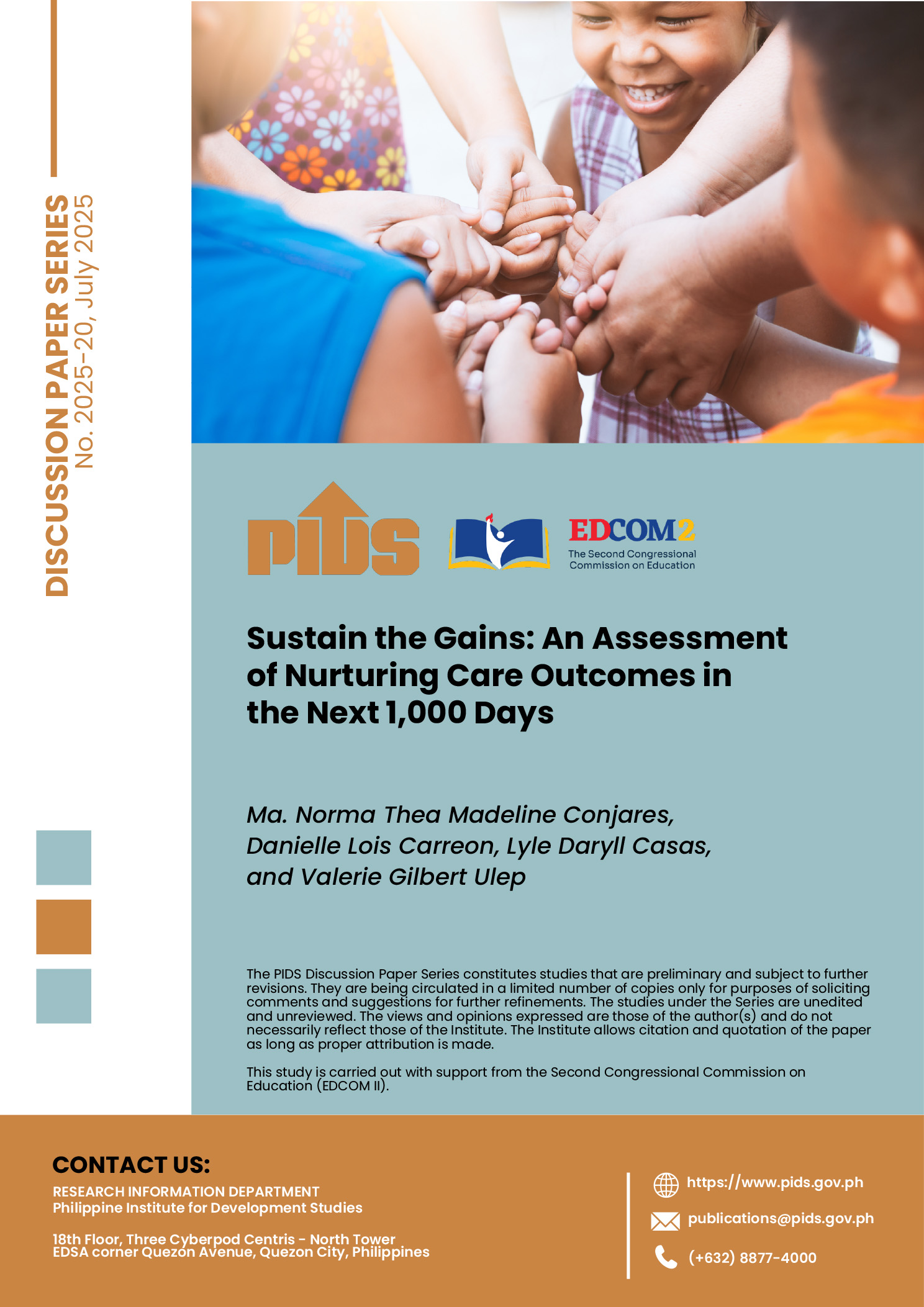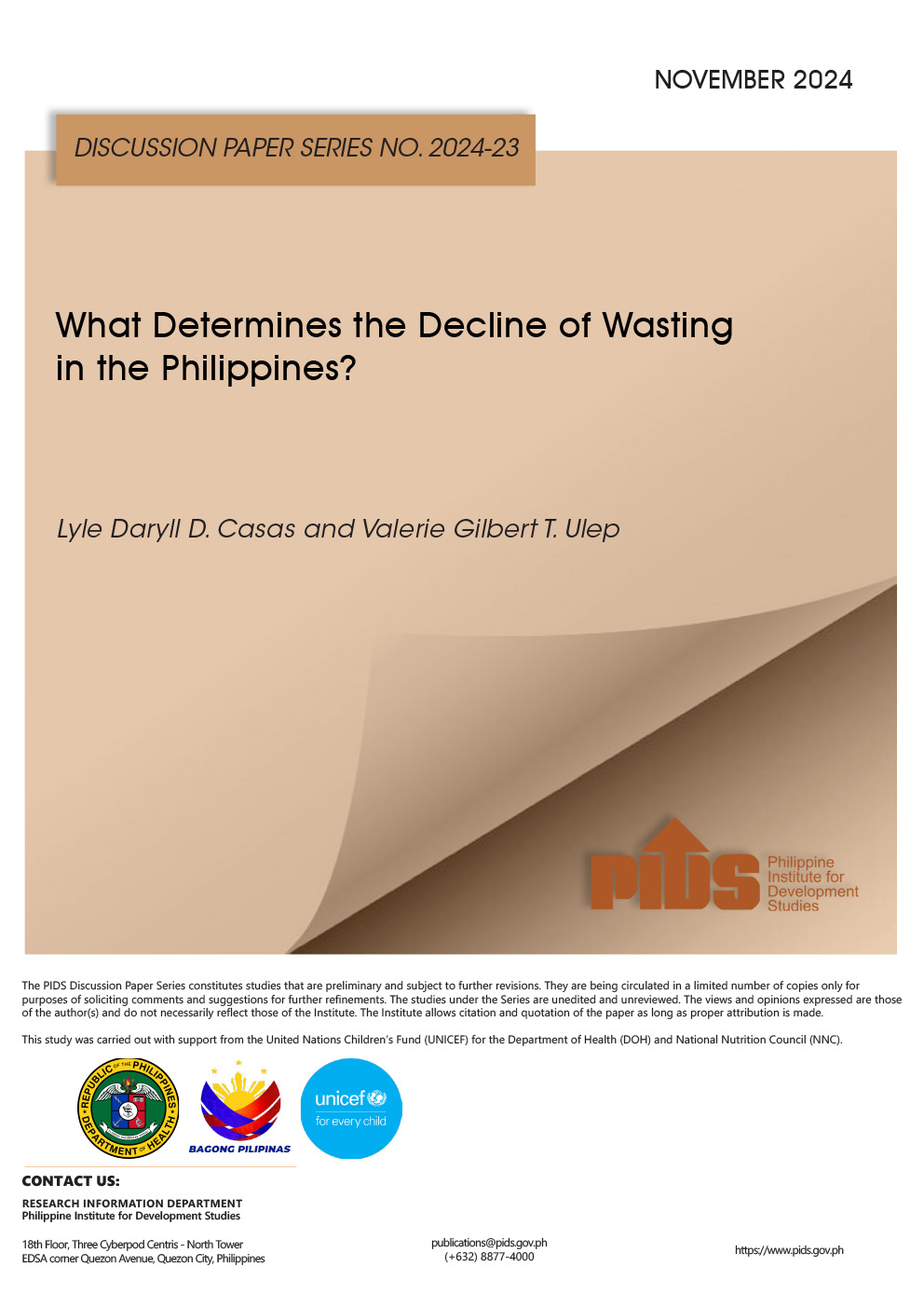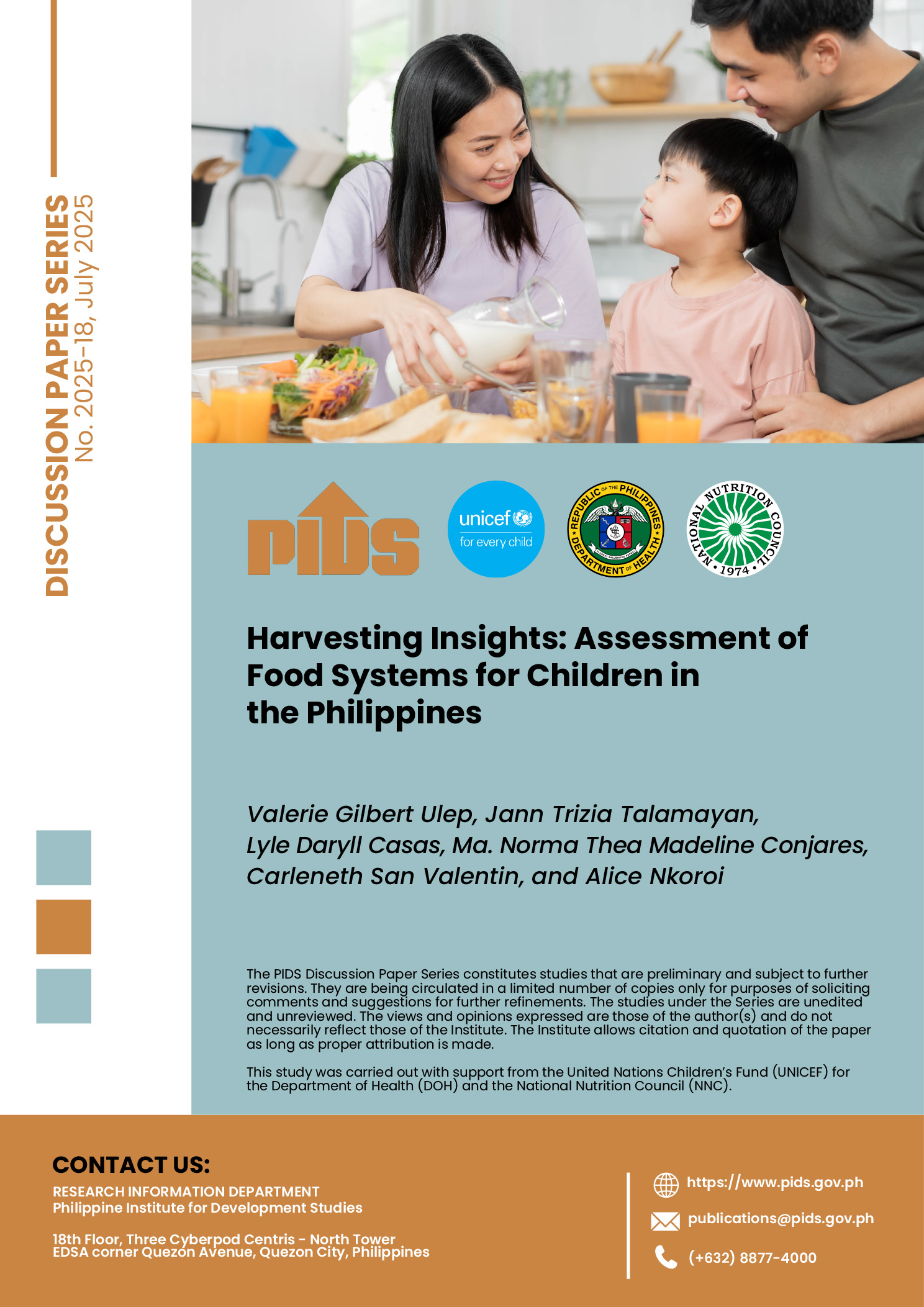The next 1,000 days of a child's life (spanning from the age of two to five years) offer a crucial opportunity to build on early gains and sustain or improve trajectories of healthy development. This period is vital for cognitive, motor, and socio-emotional growth. Consequently, it emphasizes nurturing care, which refers to the conditions established by public policies, programs, and services that enable caregivers and communities to ensure good health, adequate nutrition, responsive caregiving, opportunities for early learning, and safety and security. While Early Childcare and Development (ECD) interventions are not new in the Philippines, the next 1,000 days underscore the importance of continuity of care, emphasizing that the responsibility for ECD extends beyond parent-child relationships and the silos of the health and nutrition sectors. However, research involving disaggregated data during this period is limited among low- to middle-income countries, including the Philippines. Additionally, efforts to promote development in the next 1,000 days are often inadequate or not effectively translated into policies. This report aims to provide a baseline assessment of relevant outcomes during this critical period through the lens of the nurturing care framework, using population-level data covering children under the age of five. This assessment will guide the formulation of policy recommendations to enhance and build on these efforts, maximizing this golden opportunity for early child development.
Comments to this paper are welcome within 60 days from the date of posting. Email publications@mail.pids.gov.ph.













